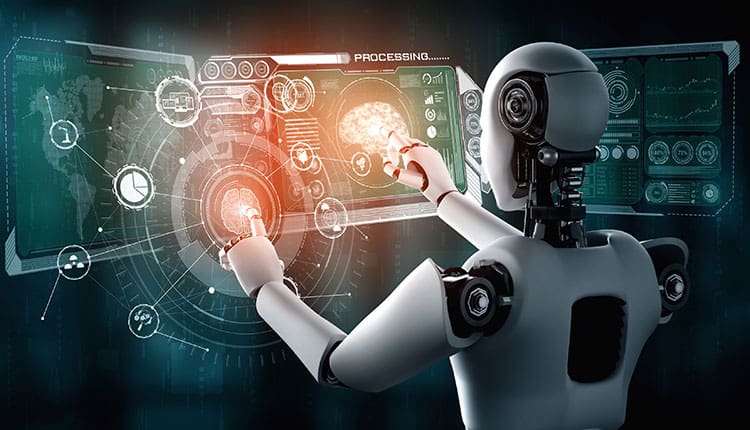Editorial: Is Technology Silent Death?
The ultimate destiny of humanity, as with all creatures, is to be destroyed. But what will be the cause of our destruction? World War? Atomic, biological, or chemical weapons? A massive meteor strike? Global warming? Will it be as dramatic as a black hole wandering into our solar system, or as mundane as famine and flood?
We look on helplessly as the world’s superpowers threaten to use nuclear weapons, but at the same time, we are oblivious to our own enthusiastic romp towards silent death. Modern technologies, particularly the internet and all its trappings, put infinite information and socialization on a handheld screen. The question is: what has technology stolen from humans with all this progress?
In recent years, the rapid development of technology and communication among humans has brought significant ease into such fields as business, health, and recreation, but this technology has also taken things away from mankind, stealing more with every moment. What is lost is difficult to measure with tools, but is real nevertheless. Modern technology is eroding our spiritual identity; our way of life, our in-person social habits, our morality, and everything else that separates us from the rest of the animal kingdom.
It is not a coincidence that as our spiritual health declines, so too does our physical health. Obesity rates are climbing everyday in countries throughout the world, including in the United States. Modern technology is addictive; it can easily result in a person sitting in a chair for hours, inactive, glued to our smartphones, tablets, laptops, video games, and television programs.
The internet capitalizes on our brain’s default desire to avoid tasks that require energy and prefers idleness. Our brain has a desire to avoid anything that threatens its survival. Perhaps that’s why it always prefers comfort and peace to challenge and change. Browsing the internet will always be preferable to doing difficult tasks.
Excessive use of social media is like a silent death. It is not a bomb, but an intellectual and mental wilting, it disintegrates many opportunities for thinking. Google has the answer for large and small questions, stunting our academic prowess. With automation there is less physical activity, and more and more people fail to use their physical strength. Young people have known no other world, reducing the growth of their creativity and vigor.
The internet has changed the very definition of words; the meanings of concepts that we took for granted for thousands of years are now “open to interpretation”, and are decided by majority rule. For example, today, ideas such as happiness, wealth, and peace, are defined differently than they have in the past; for example, “happiness” was once defined as simply an emotion, something that you sometimes feel, and you sometimes don’t. Yet today, we see “happiness” as a goal – our personal happiness, our “self care”, our success, has become what we most want in life. What sort of goal is “happiness”? Where is the mention of spirituality? Where is the message of sacrificing oneself for love? Where is the virtue of truth and honesty, even in the face of ruin? We don’t want any of that. We want to be “happy” – because that’s what the internet tells us we deserve.
Science is always progressing. And no one can stop this progress. I do not deny that this progress has been good for humanity; I merely am making the point that these boons come at a cost. How do these scientific and technological advances integrate into the social life of humans? Should they at all? Now that it exists, how can we possibly fight it? Is it even a problem for which a solution can be found?
Today’s scientists are trying to create the most advanced, humanoid robots. While the goal might be to breathe consciousness into machines, what the scientists are actually doing is turning the conscious humans into robots. If the situation continues in this way, in a hundred years, mankind will lose many things, but robots will still be robots. We will silently die.
Dr. Geoffrey Hinton, known as the godfather of artificial intelligence, has announced his resignation from tech giant Google in a statement to The New York Times, saying he now regrets his work in the field of artificial intelligence. Hinton, the British-Canadian technologist, recently told the BBC that chatbots could soon surpass the information of the human brain.
“Right now, what we’re seeing is that things like GPT4 are far ahead of humans in the amount of general knowledge they have. AI is not that good at reasoning, but it can do simple reasoning. And considering the speed of progress in this field, we expect that the performance of artificial intelligence will improve rapidly. So we have to worry about this.”
Hinton added, “I have come to the conclusion that the type of intelligence we are developing is very different from the intelligence we have. Humans should be ready for this warning.”
Could that technology destroy? Technology is developing rapidly. Today we choose a driverless car, but tomorrow we will lose our own sovereignty. Will the revolution of technology be the destruction of humanity? The young people of the planet must face these silent problems of technology; we can not be silent but take action. Make sure that it includes all of us. Morality must be considered in our technology; otherwise, humanity will be destroyed, and the humanity in all of us that technology has supplanted will not be given back. We should wake up.


